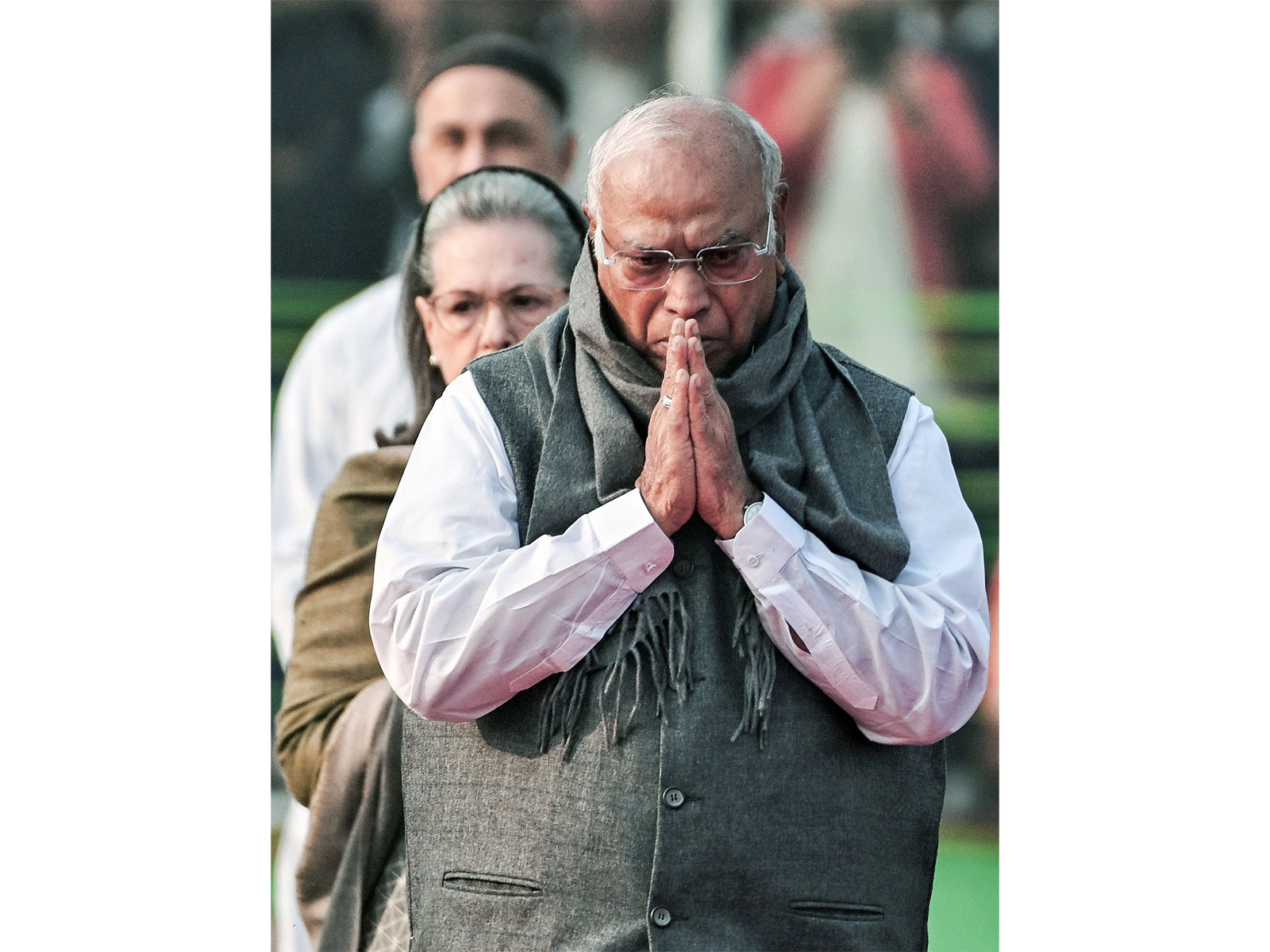How Did Indira Gandhi's Leadership Inspire Congress Chief Kharge?

Published: 2025-11-19 05:03:18 | Category: politics
On 19 November 2023, Congress President Mallikarjun Kharge commemorated the 108th birth anniversary of former Prime Minister Indira Gandhi, recognising her remarkable leadership and dedication to public service. Kharge's tribute highlighted Gandhi's significant contributions to India's progress and her unwavering commitment to safeguarding the nation's unity.
Last updated: 19 November 2023 (BST)
What’s happening now
As India reflects on the legacy of Indira Gandhi on her 108th birthday, Kharge's homage serves as a reminder of the impact she had on the country's political landscape. His message was shared on social media, resonating with many who view Gandhi as a pioneering figure in Indian politics. The tribute not only honours her memory but also sparks conversations about her policies and their relevance in contemporary India.
Key takeaways
- Indira Gandhi was the first and only female Prime Minister of India, serving from 1966 to 1977 and then again from 1980 until her assassination in 1984.
- Known for her decisive policies, Gandhi nationalised banks and abolished privy purses of princely states, marking significant economic reforms.
- She played a crucial role in the 1971 Indo-Pakistan war, leading to the creation of Bangladesh.
Timeline: how we got here
Indira Gandhi's life and career were marked by pivotal events that shaped modern India:
- 19 November 1917: Born to Jawaharlal Nehru and Kamala Nehru in Allahabad.
- 1966: Became the first female Prime Minister of India.
- 1971: Led India in the Indo-Pakistan war, resulting in the independence of Bangladesh.
- 1984: Assassinated by her own bodyguards on 31 October, following Operation Bluestar.
What’s new vs what’s known
New today/this week
Kharge's tribute on social media highlights a renewed interest in Indira Gandhi's leadership qualities and her impact on India's trajectory. As her birth anniversary is commemorated, discussions are rekindled regarding the implications of her policies in today's context.
What was already established
Indira Gandhi's legacy has been a subject of debate for decades, with supporters praising her as a strong leader who made significant contributions to India's development, while critics point to her authoritarian tendencies during the Emergency period from 1975 to 1977.
Impact for the UK
Consumers and households
While Indira Gandhi's policies primarily affected India, her leadership style and decisions resonate globally. The UK, with its historical ties to India, may reflect on her influence in international relations and economic policies relevant to the diaspora.
Businesses and jobs
Gandhi's nationalisation policies serve as a case study for businesses, especially those operating in developing markets. Understanding her approach to economic reform can provide insights into how similar strategies might play out in other nations.
Policy and regulation
Discussions around Indira Gandhi's legacy may influence policymakers in the UK when considering the balance between strong leadership and democratic principles, especially in light of current global political dynamics.
Numbers that matter
- 1966-1977: First term as Prime Minister.
- 1980-1984: Second term, marked by significant political challenges.
- 1971: Over 90,000 Pakistani soldiers surrendered during the war leading to Bangladesh's independence.
Definitions and jargon buster
- Nationalisation: The process of transforming private assets into public ownership.
- Privy purse: A payment made by the Indian government to former rulers of princely states, abolished by Gandhi.
- Operation Bluestar: A military operation ordered by Indira Gandhi in June 1984 to remove Sikh militants from the Golden Temple.
How to think about the next steps
Near term (0–4 weeks)
In the immediate future, expect discussions around Indira Gandhi's legacy to gain traction, especially in political circles and among historians. Various events commemorating her contributions may be organised.
Medium term (1–6 months)
As political parties in India prepare for upcoming elections, Gandhi's policies and leadership style may be referenced, influencing campaign strategies and party ideologies.
Signals to watch
- Public opinion polls regarding political leadership in India.
- Commemorative events or publications focusing on Gandhi's impact.
- Discussions in UK and international forums regarding women's leadership in politics.
Practical guidance
Do
- Engage with literature on Indira Gandhi's policies for a deeper understanding of their impact.
- Attend discussions or seminars that evaluate her leadership and legacy.
Don’t
- Avoid oversimplifying her legacy; consider both achievements and criticisms.
- Don’t ignore the broader historical context of her leadership style.
Checklist
- Read biographies of Indira Gandhi to get diverse perspectives.
- Stay updated on current discussions surrounding her legacy in Indian politics.
- Reflect on the implications of her policies in today's global context.
Risks, caveats, and uncertainties
While Indira Gandhi is celebrated for her contributions, there are conflicting views on her authoritarian rule during the Emergency period. The complexities of her legacy mean that any discussion must consider the broader socio-political context of her time, as well as the implications of her leadership style on contemporary governance.
Bottom line
Indira Gandhi's 108th birth anniversary serves as an important reflection point for both India and the global community. Her leadership continues to inspire discussions about governance, policy-making, and women in leadership roles. Understanding her legacy is crucial for those interested in the dynamics of political power and public service.
FAQs
What was Indira Gandhi's role in Indian politics?
Indira Gandhi was the first female Prime Minister of India, known for her significant political decisions and reforms that shaped the nation’s economy and governance.
When was Indira Gandhi assassinated?
Indira Gandhi was assassinated on 31 October 1984 by her bodyguards, following a controversial military operation she ordered against Sikh militants.
What are some key policies of Indira Gandhi?
Her key policies included the nationalisation of banks and the abolition of privy purses, which were significant moves in reshaping India's economic landscape.



